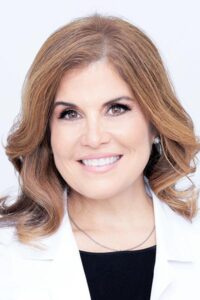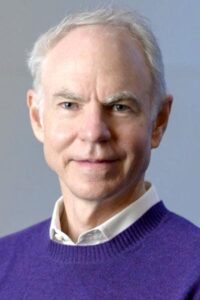Weekend plenary sessions illustrate the diversity and depth of this year’s scientific program
Setting the stage for six days of cutting-edge science, the opening weekend of the AACR Annual Meeting 2022 features a plenary session dedicated to the science of precancer on Saturday, April 9, followed by the Opening Plenary Session on Sunday, April 10, that will showcase a diverse series of presentations illustrating the continuum of cancer research. The plenary program continues over the last three days of the meeting with three morning plenary sessions and a wrap-up plenary session that will provide highlights from the meeting.
[gap height=”10″]
Precancer Discovery Science Plenary Session
Saturday, April 9 | 4:15 – 6:15 p.m. CDT | Hall B-C, Convention Center

“It’s very exciting that, for the first time at the AACR Annual Meeting, we will have an entire plenary session devoted to precancer and the emerging discoveries that are providing insight into ways we might be able to intercept cancer before it actually becomes cancer,” said Catriona H. M. Jamieson, MD, PhD, UCSD Moores Cancer Center, who will chair the session.
The Saturday afternoon plenary session will highlight new perspectives on cancer prevention, an integral part of AACR’s research and health policy efforts. The session’s expert speakers will discuss some of the hottest topics and discoveries in the field, including early detection and interception via a precancer atlas, lessons learned from research on the progression of Barrett’s esophagus to esophageal cancer, the association between somatic mosaicism and classic oncogenic drivers, and advances in genomic medicine driving research on targeted cancer interception.
“This is a very important session because this is a field that is moving at light speed,” Jamieson said. “Advances in genomics, transcriptomics, and proteomics, for example, are helping us begin to answer questions that we couldn’t even ask before. The idea of interception is now possible because we can detect cancer in its infancy and, increasingly, we’re even able to study cancer before it gets started.”
[gap height=”10″]
Opening Plenary Session: Decoding Cancer Complexity, Integrating Science, Transforming Patient Outcomes
Sunday, April 10 | 9:45 a.m. – 12 p.m. CDT | Hall B-C, Convention Center

The Opening Plenary Session echoes the theme of this year’s Annual Meeting—Decoding Cancer Complexity, Integrating Science, Transforming Patient Outcomes. The Sunday morning session features a diverse roster of speakers and presentations spanning the spectrum of cancer research, from molecular discoveries to practice-changing clinical breakthroughs, said Program Committee Chair Marcia R. Cruz-Correa, MD, PhD, who will chair the session.
“The Opening Plenary encapsulates the overall concept of the meeting by showcasing several examples of how researchers are decoding the complexities of cancer, from premalignancy all the way to the population level,” Cruz-Correa said. “During the session, we’ll hear about innovative research that is opening windows into the earliest stages of cancer development, increasing our understanding of the mechanisms of tumor evolution, and providing insight into how factors in both the microenvironment and the macroenvironment may impact or modify the risk of cancer.”

In the final presentation of the Opening Plenary, Charles L. Sawyers, MD, FAACR, of Memorial Sloan Kettering Cancer Center, will examine the future of cancer research and the key questions to be addressed as researchers continue to decode the complexities of cancer.
“Despite all of the progress we have made and continue to make, perhaps the biggest problem that we face is drug resistance,” Sawyers said. “The solution to resistance has shifted—the problem has reshaped itself as we’re seeing new forms of resistance. I am optimistic, though, that mechanism-based science, done properly, will lead to solutions to this and other problems, and we will continue to improve outcomes for our patients.”
Immediately preceding the Opening Plenary Session, the Opening Ceremony will feature several special presentations: remarks from AACR Chief Executive Officer Margaret Foti, PhD, MD (hc); remarks from the U.S. Food and Drug Administration Commissioner Robert M. Califf, MD; a special 115th Anniversary video celebrating the progress of the AACR; presentation of the inaugural AACR James S. Ewing-Thelma B. Dunn Award for Outstanding Achievement in Pathology in Cancer Research; presentation of the inaugural Victoria’s Secret Global Fund for Women’s Cancers 2022 Meritorious Awards; and presentation of the inaugural AACR Award for Outstanding Achievement in Blood Cancer Research, among other important awards and recognition.
The two-hour Opening Ceremony will begin at 7:45 a.m. CDT Sunday in Hall B-C of the convention center with a live performance by the Preservation Hall All-Stars Jazz Band.
[sub-post-content]
